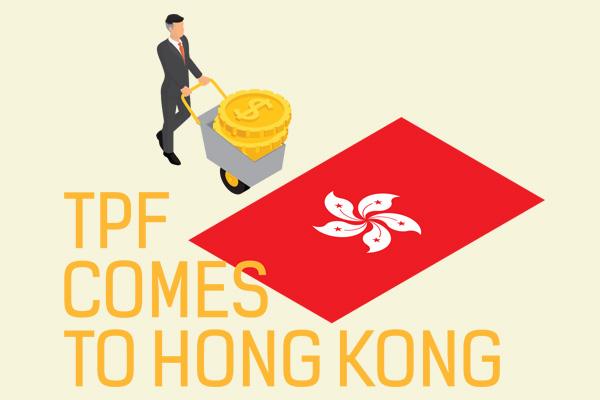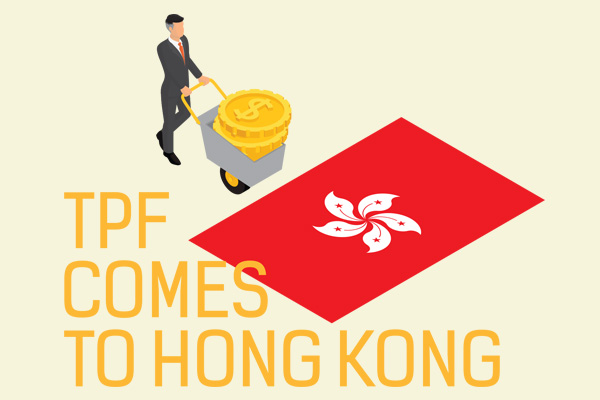
Skip to
On June 14, Hong Kong bolstered its position as a leading international disputes centre, after the city’s legislative council passed a bill that allows third-party funding (TPF) for arbitration.
Previously, litigation funders were only permitted to finance insolvency cases. But with the new law, which is expected to take effect later this year, third-party funders are now allowed to finance arbitration costs in return for a percentage of the award.
The amendment was long anticipated and widely welcomed by Hong Kong’s arbitration community, as it ensured that the city remains competitive and up-to-date with the latest international development. TPF for arbitration is already allowed in common law jurisdictions like Australia, the U.S. and the UK, while Singapore passed a similar law in January.
“Third-party funding is an important tool and one which is being used to great effect in other developed disputes markets. That makes it all the more important that it is now available in Hong Kong, which risked losing market share to other arbitral seats where funding was permitted,” says Justin D'Agostino, global head of disputes at Herbert Smith Freehills and a member of the Hong Kong Law Reform Commission's Sub-committee on Third-Party Funding for Arbitration. He added, “The new legislation has effectively levelled the playing field for Hong Kong vis-a-vis its major competitors.”
Arbitration has been gaining traction as a preferred dispute resolution mechanism in Asia. It’s private and confidential, and parties can decide the location, language, as well as the arbitrators. It is also usually quicker and cheaper than traditional litigation, and while it may be a more cost-effective way of pursuing a claim, it can still be expensive. But that should no longer hold back clients in Hong Kong considering arbitration.
As James Comber, a dispute resolution partner at Ashurst, points out, "It will likely be an attractive proposition for commercial clients, and in particular their CFOs, to be able to remove the costs of running an arbitration from their own balance sheet while at the same time preserving the potential upside of being able to keep a proportion of any amounts awarded to them by the arbitral tribunal.”
Back to topBRIGHT FUTURE
The passing of the bill is also timely – exactly a month after the Belt and Road Forum in Beijing. Hong Kong is perfectly positioned as a go-to centre for disputes arising from China’s $1 trillion infrastructure investment project across more than 60 mostly emerging markets.
“The Supreme People Court of China indicated strong support towards the use of arbitration for resolving cross-border disputes connected with the One Belt, One Road initiative,” says Mun Yeow, a Clyde & Co disputes resolution partner. “Hong Kong is ideally placed to become the designated arbitration venue under the One Belt, One Road projects. The new legislation further strengthens Hong Kong's position to be the primary choice of arbitration venue in these projects, particular in the marine and construction fields.”
The future looks bright for disputes lawyers in Hong Kong, though until the legislation comes into force – no fixed date has been set – there is no immediate effect of the bill. But firms like Herbert Smith have already seen interests from clients, which D'Agostino expects will increase, as well as more activity on the ground by the funders.
He notes, however, that it's important to remember that not every case is suitable for funding expecting that, as funders are selective about the cases they take because they are assuming the risk, there won’t be a huge surge in funded cases immediately.
In general, most commercial funders will only finance claims where the expected payoff is over ten times the amount that it will cost to fund the project to completion, says Comber, adding that claims of less than around $10 million are much less likely to receive funding.
“But as the market develops, both Hong Kong lawyers and their clients will get used to navigating the world of funding,” says D'Agostino. “I'm sure we will see more and more clients seeking funding, and more and more lawyers helping their clients to obtain funding. All being well, funding should be a win-win situation for all the stakeholders in Hong Kong arbitration.”
Back to topHONG KONG VS. SINGAPORE
The laws passed by Hong Kong’s and Singapore are broadly similar, with the two Asian financial centres seeking to abolish legal impediments holding back TPF. But there are several differences between the two cities’ laws as well:
Mun Yeow, Clyde & Co:
– Both jurisdictions provide for disclosure of TPF arrangements. In Hong Kong, a funded party must notify the arbitration body and every party of the existence of a funding agreement and the identity of the funder either upon commencement of an arbitration, or if the agreement is made after commencement, within 15 days of it being made. In Singapore, legal practitioners whose clients are being funded through third party are required to disclose this fact to the tribunal and all parties involved, as well as the identity and address of the funder. A funder must also be a "qualifying third-party funder", meaning that they must carry on the principal business of the funding of the costs of dispute resolution proceedings.
– Hong Kong is to adopt a "light touch" approach. The new law does not set out detailed regulations for funders, but states that the authorised body may issue a Code of Practice for funders. The code may cover the terms of the funding agreement, the minimum capital requirements for funders, the degree of the funders' control of the arbitration, and the procedures for addressing complaints from the funded parties.
James Comber, Ashurst:
– At this stage, the framework under Singapore law focuses solely on international arbitration, which has a Singapore seat. In comparison, the Hong Kong legislation allows TPF for both domestic and international arbitrations and extends its provisions to non-Hong Kong seated arbitrations.
– Both jurisdictions provide for some form of regulation of the third-party funding industry. At this stage, the precise standards required of funders in Hong Kong remain uncertain, as this has been left to development of a future Code of Practice by an as yet undesignated authorised body. In contrast, the Singapore legislation already outlines criteria that funders must continue to meet in order to be eligible as a qualified funder.
Justin D'Agostino, Herbert Smith Freehills:
– Singapore allows funding only by professional funders, whereas Hong Kong's definition of funder is much broader, perhaps in recognition that there are a number of alternative funding methods being employed in the market.
– Unlike Hong Kong, Singapore directly imposes sanctions on a funder that fails to comply with the law's requirements for it to be a "Qualifying Third Party Funder". If this happens, the funder is prohibited from enforcing its rights under the funding agreement.
Back to top


